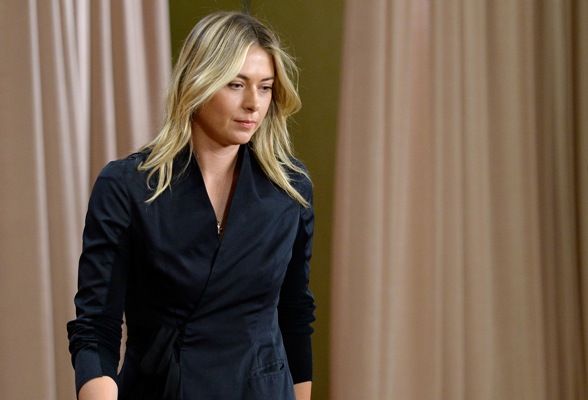'The situation with Sharapova could be resolved after April 21 when we meet with the head of the international federation. After that all should be become clear. It is too early to talk about Sharapova competing at the Olympic Games'

Athletes who tested positive for meldonium before March 1 this year could have their bans overturned after the World Anti-Doping Agency (WADA) announced it was unable to establish how quickly the drug, outlawed since January 1, cleared the system.
- Sharapova admits that she failed a dope test
WADA's announcement could allow five-time grand-slam tennis champion Maria Sharapova, who failed a test for meldonium in January, and other banned athletes to return to competition, Russian officials said on Wednesday.
Sharapova, the world's highest-earning sportswoman, was among 40 Russians who failed dopes tests for meldonium after it was added to WADA's list of banned substances in January.
Meanwhile, RIA news agency quoted Russian Sports Minister Vitaly Mutko as saying on Wednesday that international organisations will decide "on an individual basis" on whether to amnesty Russian sportspeople who tested positive for the banned meldonium substance.
WADA said there was "currently a lack of clear scientific information on excretion times. As a result it is difficult to know whether an athlete may have taken the substance before or after January 1, when it became illegal."
"In these circumstances, WADA considers that there may be grounds for no fault or negligence on the part of the athlete," it said in a statement sent to anti-doping agencies and sports federations, adding that the presence of less than one microgram of meldonium in the samples was acceptable.
Sharapova, who said she had been taking meldonium for more than a decade because of health problems, was banned by the International Tennis Federation (ITF) on March 12 after announcing she had failed a test at the Australian Open in Melbourne.
Russian Tennis Federation President Shamil Tarpishchev said Sharapova’s ban could be addressed in a meeting with ITF head David Haggerty later this month.
“The situation with Sharapova could be resolved after April 21 when we meet with the head of the international federation. After that all should be become clear. It is too early to talk about Sharapova competing at the Olympic Games,” Russia’s TASS news agency quoted Tarpishchev as saying.
Russian Sports Minister Vitaly Mutko welcomed WADA's decision.
"The Russian Sports Ministry supports and welcomes the decision made by WADA because it has showed a willingness to understand the situation, rather than stick to the rulebook," Mutko said in a statement.
"WADA has demonstrated impartiality and being objective in the fight against doping."
Alexei Kravtsov, president of the Russian Skating Union (RSU), said that five-times world champion Pavel Kulizhnikov and 2014 Olympic short track gold medallist Semen Elistratov -- both found to have taken meldonium -- should be allowed to compete again after the WADA decision.
"These sportsmen should be allowed to fall under the amnesty due to the amount found in their doping tests," Kravtsov was quoted as saying by the R-Sport news agency.
"They were not guilty, as we had been saying earlier. This is of course good news, but there is still a bit of a cloud hanging over all of this."
Meldonium, manufactured for people suffering from heart problems, can also increase blood flow and improve exercise capacity.











